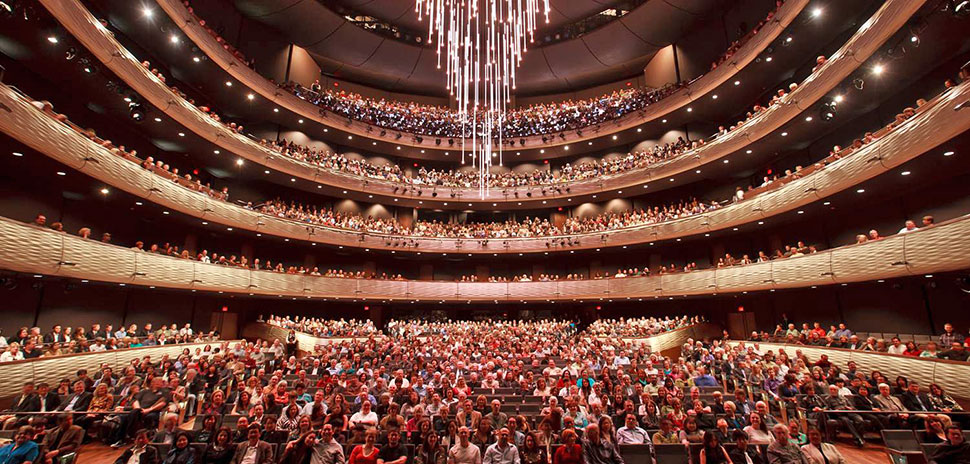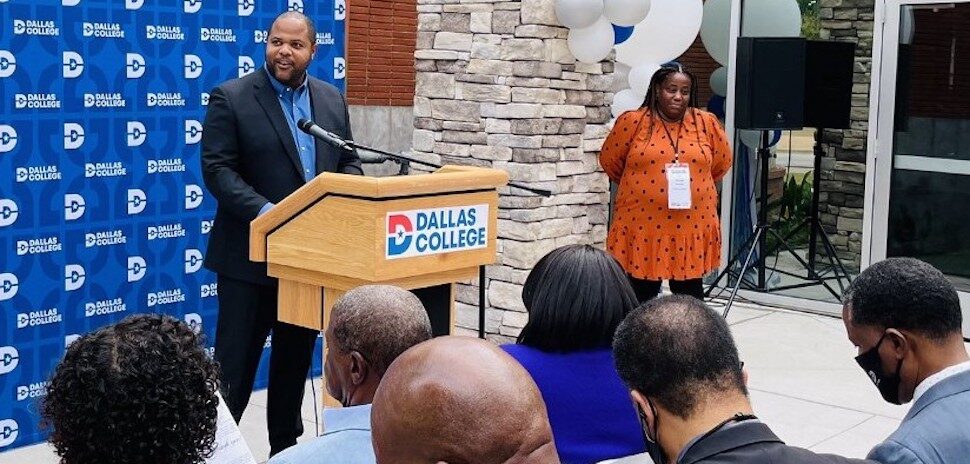Wolford McCue, The Arts Community Alliance’s new Carlson president and executive director talks to us about the challenges facing arts groups, how technology is helping artists reach new audiences, and more.

Wolford McCue
How would you characterize the DFW creative community?
There is very strong creativity in DFW, but the entire market would benefit if the number of individual artists and organizations grew. According to SMU’s National Center for Arts Research’s Arts Vibrancy Index, DFW doesn’t rank in the top 20 cities for arts vibrancy and underperforms in three key 12 measures: the number of arts organizations, the number of independent artists, and federal and state grants.
What are the biggest challenges art groups will face in 2017 and how can they overcome them?
They are underfunded and understaffed, and the salaries for performers and production staff are low. It’s an ongoing challenge. If we want to have a vibrant arts market, we need to attract and retain arts performers and production talent. Right now, we don’t have the full complement of tools in place to do that.
If we want to have a vibrant arts market, we need to attract and retain arts performers and production talent.
Concepts that would take time and additional resources to implement, but which could make a big difference include:
-Artists and performers need to be attracted to Dallas with the notion that they can make a living in the arts and know that their work is valued and celebrated.
-Specifically, we need to create opportunities for performers to have job opportunities that complement their performance work. One example that I admire is Home Depot providing jobs for Olympians while they are training.
-We need to provide places for performance and production professionals to live, perhaps we partner with developers to provide affordable places to live. And we need to help them with the economics of living, such as health insurance, perhaps a co-op for providing it based on their income.
-Finally, we need to look at DFW as how we can make it an arts destination for actors, musicians, visual artist, dancers, and production professionals.
What are the groups to watch this year in terms of those making unique impacts on the arts?
It will be the groups that present extraordinary performances and who do an extraordinary job of bringing audiences through the front door. Additionally, it will be those who take their performances to non-traditional venues in order to connect with new audiences.
What lessons can others learn from them?
The arts connect communities that might not normally interact with each other. The arts challenge people to think about issues not normally addressed at work and elsewhere, i.e. race, class issues, gender, inequality, opportunity, and perspective. One example is Cara Mía Theatre Co.’s collaboration with the Dallas Theater Center on a production called Deferred Action, which focused on immigration. It’s important to understand the fabric of the community; this production reached its goal of offering different perspectives for the audience to consider.
The arts also establish a foundation for strategic business innovation that is grounded on experiences and insights.
The arts also establish a foundation for strategic business innovation that is grounded in experiences and insights. In fact, research shows the most important personality traits for business career success are considered to be intelligence, personality, creativity, persistence, curiosity, and fearlessness — many of which are learned through the arts. People who have a better grasp of their community or market have a better chance to be innovative in work and in life.
In what ways do you think technology has most transformed the arts? What big changes do you foresee on the horizon?
Technology has helped arts organizations reach new audiences. TACA’s North Texas Cultural Co-op is an online network of regional cultural organizations that enables the secure sharing of patron data through a powerful database, the TRG Data Center, built and operated by TRG Arts. Membership is open to regional nonprofit cultural organizations and made possible by TACA. This online tool gives member organizations access to permission-based list trading, analysis and reporting, and data hygiene, all at your fingertips! So, for example, this data tool will allow a theater company to find other constituents interested in theater.
Other examples include email marketing to those who want to receive a group’s news, social media and websites to reach audiences locally and elsewhere.
But at the end of the day, the human, one-on-one interaction that stimulates thought and introspection is core to the arts. TACA believes that performances offer the opportunity for individual performers to connect to each attendee and ignite an intimate conversation that demonstrates respect, offers exploration, examines personal challenges, celebrates diversity, and tenders hope, joy, understanding, and laughter.
Delivering what’s new and next in Dallas-Fort Worth innovation, every day. Get the Dallas Innovates e-newsletter.

































































